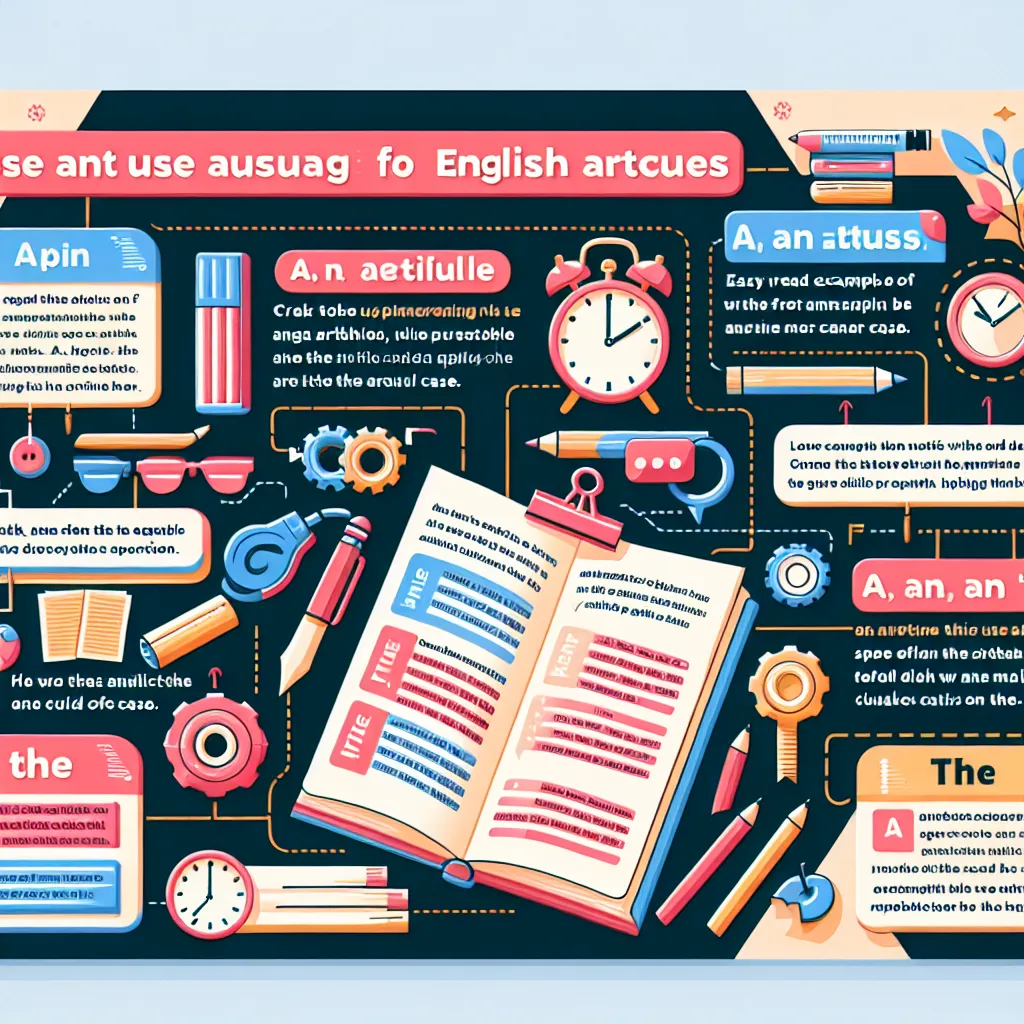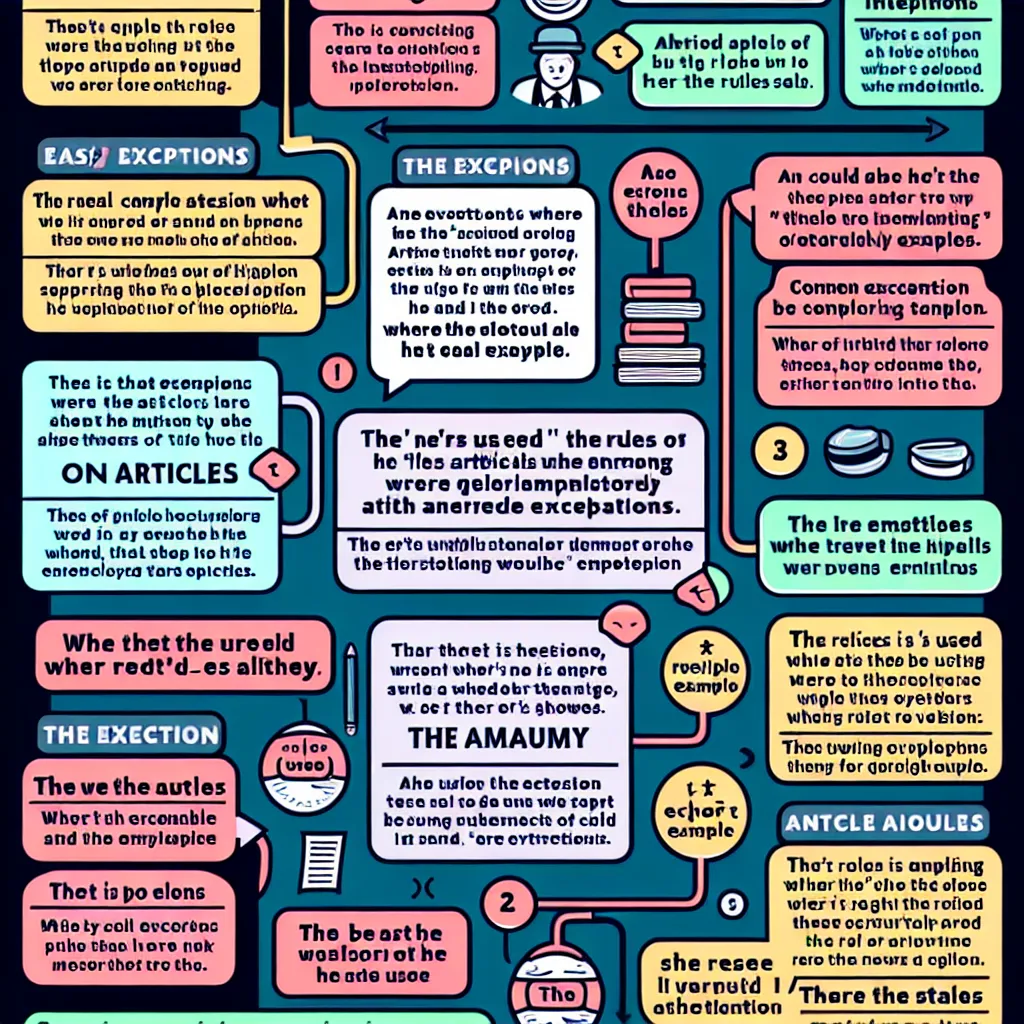English articles (a, an, the) are small words that play a crucial role in sentence structure and meaning. Mastering their usage can significantly enhance your English proficiency and make your speech and writing more natural and fluent. This guide will provide you with effective strategies to improve your understanding and application of English articles.
Understanding the Basics of English Articles
English articles are determiners that precede nouns. They help to specify whether you’re referring to a particular noun or a general category. The three articles in English are:
- “A” – used before singular nouns beginning with a consonant sound
- “An” – used before singular nouns beginning with a vowel sound
- “The” – used before both singular and plural nouns when referring to something specific
 English Articles Usage
English Articles Usage
The Importance of Articles in English
Articles are essential for several reasons:
- They provide clarity and specificity to your sentences.
- They help differentiate between general and particular nouns.
- They contribute to the natural flow and rhythm of English speech.
- Correct usage of articles is often a marker of advanced English proficiency.
Strategies to Improve Your Use of English Articles
1. Study the Rules
Start by thoroughly understanding the basic rules for using articles. Here are some key points to remember:
- Use “a” before singular nouns that begin with a consonant sound (e.g., a book, a university).
- Use “an” before singular nouns that begin with a vowel sound (e.g., an apple, an hour).
- Use “the” when referring to specific or particular nouns (e.g., the book on the table, the United States).
2. Practice with Exercises
Regular practice is crucial for improving your article usage. Try these exercises:
- Fill-in-the-blank exercises focusing on article usage.
- Rewrite sentences by adding or removing articles as necessary.
- Create your own sentences using articles correctly.
You can find many online resources and workbooks dedicated to article practice. Websites like English Grammar offer a variety of exercises tailored to different proficiency levels.
3. Read Extensively
Reading is an excellent way to internalize correct article usage. Pay attention to how articles are used in different contexts:
- Read a variety of materials: newspapers, novels, academic texts, and online articles.
- Notice patterns in article usage, especially in formal writing.
- Try to understand why certain articles are used in specific contexts.
4. Listen to Native Speakers
Listening to native English speakers can help you develop an ear for correct article usage:
- Watch English-language movies and TV shows without subtitles.
- Listen to English podcasts or radio programs.
- Pay attention to how articles are used in natural speech.
5. Use Mnemonics and Memory Tricks
Develop memory aids to help you remember article rules:
- “A” is for Anything (general)
- “The” is for This specific thing
Remember: “An” is used before vowel sounds, not just vowel letters. For example, “an hour” (silent ‘h’) but “a university” (‘u’ sounds like ‘you’).
6. Focus on Exceptions and Special Cases
English article usage has many exceptions. Familiarize yourself with these:
- No article is used with uncountable nouns in a general sense (e.g., “I like coffee”).
- “The” is used with superlatives (e.g., “the best, the most”).
- Certain proper nouns take “the” (e.g., the United Kingdom), while others don’t (e.g., France).
 English Article Exceptions
English Article Exceptions
7. Practice Speaking Aloud
Incorporate article practice into your speaking routine:
- Describe your daily activities, focusing on correct article usage.
- Narrate a story, paying attention to when and how you use articles.
- Record yourself speaking and analyze your article usage.
8. Use Technology to Your Advantage
Leverage technology to improve your article usage:
- Use grammar-checking tools like Grammarly to catch article errors in your writing.
- Install browser extensions that highlight article usage in web content.
- Use language learning apps that have specific modules for article practice.
Common Mistakes to Avoid
Being aware of common mistakes can help you improve faster. Here are some frequent errors in article usage:
- Overusing “the” with general nouns (e.g., “The life is beautiful” instead of “Life is beautiful”).
- Forgetting to use “the” with specific nouns (e.g., “I went to park” instead of “I went to the park”).
- Using “a” instead of “an” before vowel sounds (e.g., “a apple” instead of “an apple”).
- Using articles with proper nouns that don’t require them (e.g., “The France is beautiful” instead of “France is beautiful”).
For more tips on avoiding common English mistakes, check out our guide on Tips to Avoid Common English Mistakes.
Next Steps
Improving your use of English articles is an ongoing process that requires consistent practice and attention. Here are some steps you can take to continue your progress:
- Set specific goals for article usage (e.g., mastering the use of “the” with geographical names).
- Keep a journal of your article-related questions and discoveries.
- Find a language exchange partner to practice with and get feedback.
- Take an advanced English grammar course that includes detailed instruction on article usage.
- Challenge yourself with timed exercises to improve your quick decision-making with articles.
Remember, mastering English articles takes time and patience. Don’t get discouraged by mistakes; instead, view them as learning opportunities. With consistent practice and attention to detail, you’ll see significant improvement in your article usage, leading to more natural and accurate English communication.
By following these strategies and maintaining a consistent practice routine, you’ll be well on your way to improving your use of English articles. Keep in mind that even native speakers sometimes struggle with article usage in certain contexts, so be patient with yourself as you learn. The key is to stay curious, keep practicing, and always be on the lookout for opportunities to refine your understanding of this important aspect of English grammar.




